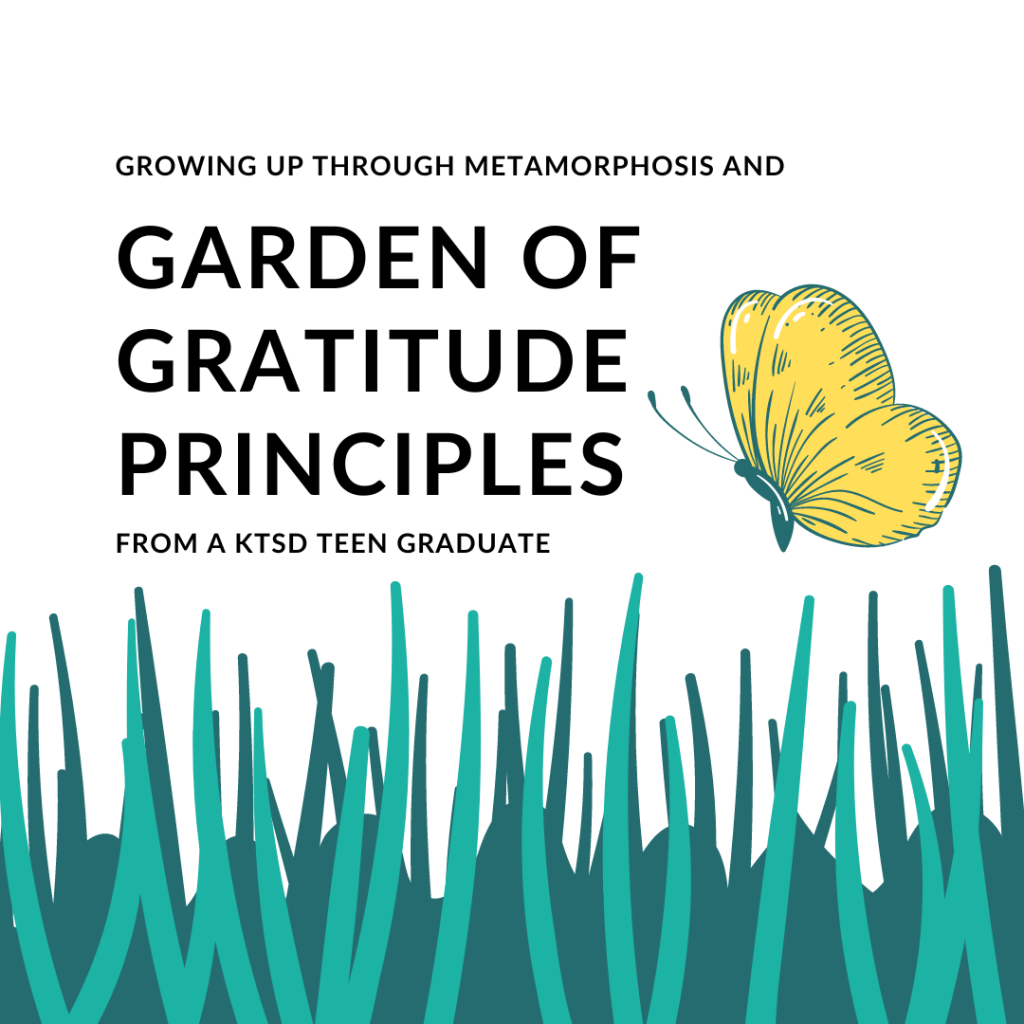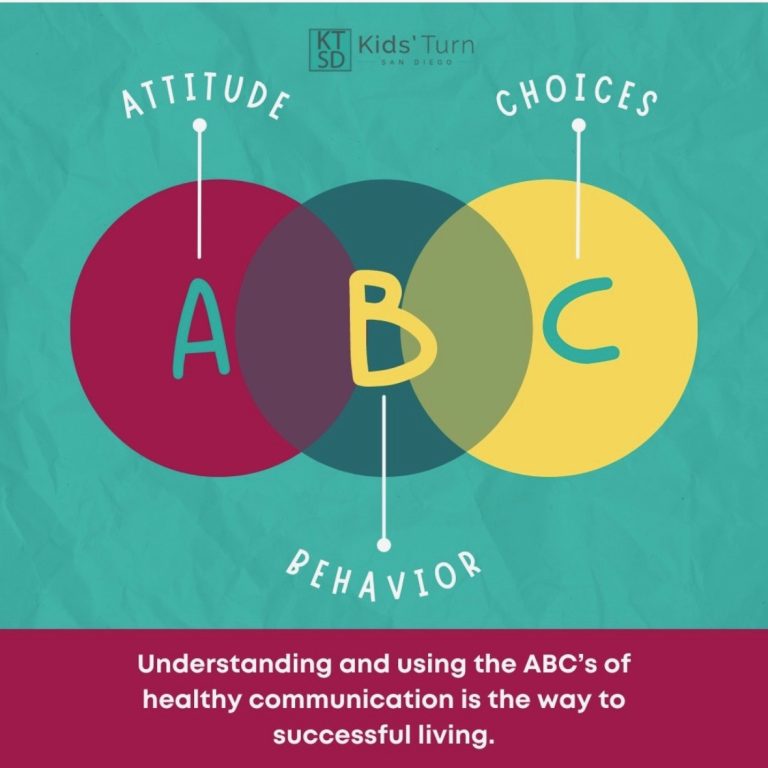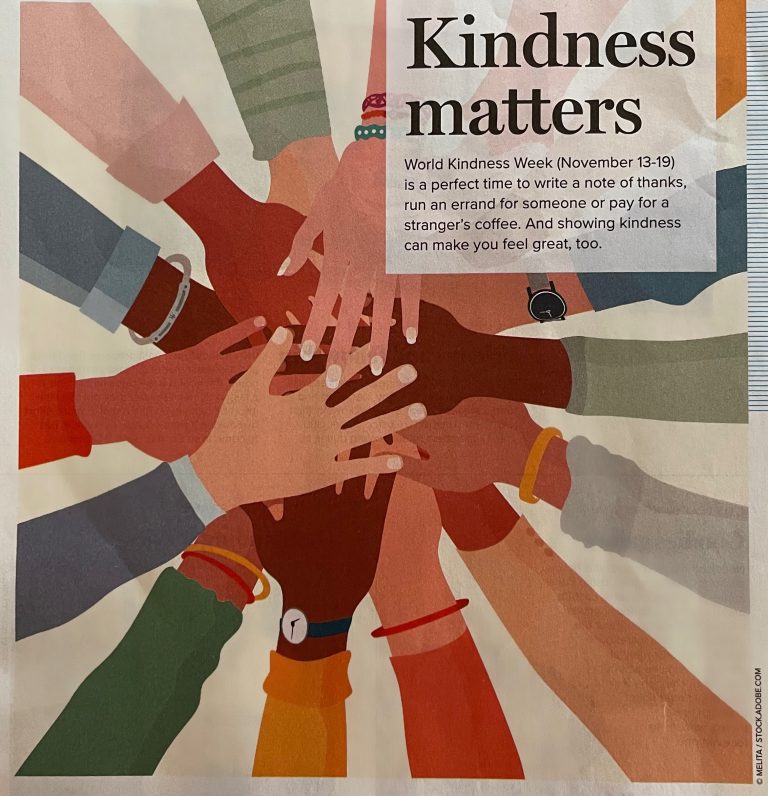What can we find for you?
Getting Back to School: Be The Growth For You and Your Family
Written by Family Workshop Teen Graduate
Have you been enjoying your summer? Well KTSD sure hopes you have!
Getting up at 6:30, falling asleep over breakfast, and getting dropped off at 8:27 just in time to make it to first period; It’s all part of the hectic day-to-day which is school. Imagine packing your bag for your dad’s house, realizing you left your favorite top in your mom’s washer, and forgetting where you put your math homework. Either of these situations is stressful, but put them together and the day becomes a little longer, homework a little harder, and the weight you carry a little heavier. These two schedules combined can easily be the routine for any child of divorce.
Now instead, picture this:
A fresh shower in the morning, a good breakfast, and fresh-smelling pencils you got for your English class. Your dad is responsible for a peaceful drive to school with your favorite song playing in the background. You realized you left your math homework at your mom’s house, so she kindly offered to drop it off at the front desk for you.
Simple ways to make the day less stressful can be as straightforward as having some kindness. Lend a helpful hand for your co-parent, work with them for your child instead of against them for the last word. Sometimes the best way to help is to be available during the hard moments and do the small simple tasks that can easily be forgotten. It can also mean being the bigger person and agreeing to disagree.
Switching over to the school season is always an adjustment, whether you’re a parent or a child. Having patience, perseverance, and the ability to problem solve can make any school day better, and with a change in perspective, you can also help you help yourself. By looking at the positives you can turn a challenge into a triumph, and stressors into propellers. Get a planner, write things down in your notes app, and use your reminders. Switching houses can be difficult for your children, so make it easier by starting good habits. Use KTSD as the foundation for your growth.
Start making good habits by breaking bad ones, and be the growth for you and your family.
Have a great start to the school year!
Don’t forget to follow KTSD on social media!
A Journey for July!
Written by Family Workshop Teen Graduate
Have you been enjoying your summer? Well KTSD sure hopes you have!
Need some tips on where to go or how to make the most of the sun? KTSD has you there too!
Whether you, your child, parent, or sibling needs a handy guide on what our community has to offer, let us share some fun things you can do to make the most of your summer!
- The Beach!
- With so many options, you’re bound to have a full-day adventure! From Imperial Beach to La Jolla Cove to Oceanside, there is a scene right for you and your family. Do you want to bring the fur babies too? Great idea, go ahead and visit Del Mar or Ocean Beach’s dog beach!
- Run Back in Time…
- Feel like discovering more about the area’s history? With many accommodating options, there are dozens of museums and exhibits to check out! A popular destination to meet all needs is Old Town! Attractions like shops, restaurants, and activities are accessible with hours available via their website and ready for you to visit.
- Paint and Clay
- If you’re feeling in touch with your inner artist and want a fun activity to harness it, paint-your-own-pottery studios are available for some family fun. Places like Color Me Mine, The Hotspot, and CeramiCafe all offer services to get hands-on and invested in artistry.
- A Late Night Out
- Looking for something a little out of the box? Whether it’s an outdoor movie or a live band, you have options! Cinema Under The Stars can offer a unique and fun movie experience, while venues like The Music Box and The House of Blues can provide an intimate musical experience. Looking for the next level? The San Diego Symphony offers showtimes and experiences throughout the year for those devoted music connoisseurs.
- Peace and Tranquility
- Sometimes a low-key day is a more suitable speed, so consider these options. A hike can be a perfect balance between activity and reserve. You can also decide to tune into your spirit and pick up a yoga class at a studio near you like CorePower Yoga or The Yogabox. Maybe you’re looking for mind rejuvenation instead of physical. In that case, consider a library cafe or animal cafe to add some spice to your morning coffee.
Something you can do any day, any hour of the summer is appreciate the people around you. If none of these activities sound like your cup of tea, make a fun choice and be a stroke of sunshine for yourself and your family this summer.
Smile more, and worry less. Happy Summer!
Don’t forget to follow KTSD on social media!
A Fun "Think About Your Family" Poem
Written by Family Workshop Teen Graduate

What is sweet as far as you can see?
Well, that’s what June ought to be!
As it is National Candy Month,
It is important to remind yourself what is sweet,
So much in life, is a treat!
Maybe your favorite person is your daughter,
Or you really appreciate your father!
More than all the gumdrops in the world,
You love your baby boy or girl.
Whether it is your mother, father, sister, or brother,
This month you can share how you love one another.
Don’t forget to follow KTSD on social media!
Mental Health from a Teen's Perspective
Written by Family Workshop Teen Graduate
The mind and body depend on one another.
For one system to perform to the best of its ability, the other must be in good condition. Just as exercise is crucial for the maintenance of the physical system, an array of variables contribute to the well-being of the mental system. When any one component falls short, the rest fall into disorder.
Any number of things can disturb one’s mental health, from relationships, employment, and social media, to a difficult project at school or a bad sports practice. As mental health can be largely affected by our surrounding environment, a divorce can have detrimental effects on a healthy mind.
When the worst of my parent’s divorce happened, I was in 7th grade. From about 12 – 13, my mental health was at an all-time low. Think of all the things that make one’s middle school experience challenging. One’s body is making changes never made before, some start new schools, some make new friends, and all have at least one thing they’re insecure about. For some it’s the most difficult time of their lives. On top of my predisposed hurdles, I had to switch houses every weekend, go to a family therapist to deal with more problems, and be the middleman for a relationship that wasn’t my own. In simple terms, I was exhausted, burnt out, and sad.
May is often a transitional month for many children’s lives, as the school year is coming to a close, spring turns to summer, and many are close to getting a break. Whether you’re burnt out, your child is sad, or your relationships are exhausted, take a moment this month to reflect. Take a moment to listen to your mind.
Every person has a burden that weighs on them. Listening to your needs on both sides, the physical and the mental, helps the body to reach and maintain a balance.
This is one of the reasons it’s so important to take time, to take a breath, during May, during whichever month, to encourage peace of mind. A divorce is one more barrier between oneself reaching that mindfulness. Whether you are a parent or a child struggling through it, don’t let divorce get in the way of your mental health. Utilizing the tools around you is a great place to start.
KTSD helped me work through those residing mental blocks, and they could help you too. When your life is overwhelming and your mind is overworked, be the change of pace to make your world better.
Start making good habits by breaking bad ones, and be the growth for your family.
Be the Growth for Your Family
Donate to Help Families Heal
Don’t forget to follow KTSD on social media!
Parental Alienation from a Teen's Perspective
Written by Family Workshop Teen Graduate
Alien.
What does that word make you think of?
For some, unknown green creatures come to mind. Others think of the mysterious Area 51, or the kind gentle alien representation, E.T. Some have a negative affiliation with the word, recalling a time a family member, friend, or themselves was referenced by the term.
Alienating.
Building from our previous meaning for the word alien, what would you think “alienating” means to a little kid?
When I was 10, these terms were synonymous. So, when my dad screamed the word in my face, I was confused. I couldn’t believe I was being called an alien. I had never watched “E.T.”, I knew I didn’t come from Area 51, and I was positive I wasn’t green. Nevertheless, that comment made me feel like a lesser human. When I questioned him, asking what he meant by that, his reply was, “Your mom is alienating you from me. In fact, you’re alienating yourself.”
I was told that my mom was trying to make me into an alien, and I was too.
As April is National Parental Alienation Month, it’s important, especially now, to take time to understand what the word truly means, how it impacts your children and why avoiding the word is critical.
Based on the Oxford dictionary, alienation is a noun meaning, “the state or experience of being isolated from a group or an activity to which one should belong or in which one should be involved.”
After therapy and years of help, I realized the repercussions of what my dad had said, and most of all how untrue the statement was.
From a child of a divorced family that was confused by a parent using the word “alienating”, here’s my perspective. Alienating should not be weaponized; It should not be used to hurt your loved ones. As a child of divorce, oftentimes I would fall in the middle of an argument, or be the center of it. Being in the middle of one more problem, only pushed me further into confusion and isolation.
To all the parents reading this blog, I encourage you –
Be the change for your family or your child by building instead of breaking.
Kids’ Turn San Diego helped my family learn, and helped me heal.
Start making good habits by breaking bad ones, and be the growth for your family.
Be the Change for Your Family
Donate to Help Families Heal
Don’t forget to follow KTSD on social media!
Garden of Gratitude Principles

Written by Family Workshop Teen Graduate
Living a positive, successful life is unattainable without gratitude.
Often described as appreciation, gratitude is demonstrating thankfulness for someone or something in your life. Gratitude can also be used as a coping mechanism, often helping with emotion and stress regulation. For those like me, a child of divorce, gratitude is an especially necessary skill and mindset to implement in daily life.
This year, Kids’ Turn San Diego’s Garden of Gratitude campaign represents the overarching process of giving thanks. Building your garden of gratitude takes time and effort, but can start with something as simple as saying thank you. In the heat of my parents’ divorce, attending the Family Workshop at KTSD helped me grow through gratitude. This began my metamorphosis, like the butterfly in KTSD’s garden, with the hope to encourage growth and reflection in me, my parents, and my sibling.
In 2020, when I began my KTSD journey, I was at an all time low. It was increasingly challenging for me to feel connected to my community. I believed nobody around me resonated with my feelings, or wanted to. When I joined the Family Workshop program, I was encouraged to interact with kids my age who felt similarly, and we learned and practiced many skills. It was crucial for me to gain understanding and perspective on my situation in relation to others, as that helped me practice gratitude. Suddenly, I was grateful to have at least one parent that reached out to understand me. I was grateful to have a sibling, someone who believed in me, who I could believe in as well. I was grateful to have a program that showed me I’m not alone. All of those components together propelled me into my biggest stage of development.
Metamorphosis is often a symbol used to represent a big change in behavior or thinking, ultimately showing growth into maturation or adulthood. For me, KTSD helped change metamorphosis from a symbol to an outcome, as my experience helped me grow in wisdom, as well as perspective.
From all the lessons I received from KTSD, the biggest takeaway I had was to give grace to myself and others around me suffering. Hold your loved ones tighter, give a smile to a stranger, say thank you when someone helps you… Thank you to the Group Leaders at KTSD for planting seeds and helping me become the beautiful butterfly I am today.
Begin Your Metamorphosis
Plant a Seed of Kindness
Don’t forget to follow KTSD on social media!
CHOOSING PEACE OVER CONFLICT

CHILDREN IN CONFLICT
Divorce leads to a broken heart for everyone in the family, especially when conflict contiues after the papers are signed. Dreams may be shattered and lost. We may feel alone and sad. Sometimes we even feel angry and these feelings transition out of our hearts and into our behavior. It may not feel like it or you may not believe it, but having conflict in your relationship with you co-parent is a choice. You cannot change them or what they may or may not do to engage in conflict, but you can control yourself. YOU CAN DECIDE THAT YOU NO LONGER WANT THE CONFLICT. This doesn't mean that your co-parent will change or stop trying to engage you in the conflict, but it does mean that you have a choice to engage in the conflict, to continue it or YOU CAN CHOOSE TO SAY NO THANK YOU AND MOVE ON WITHOUT REACTING TO THE CONFLICT. This is not easy, but if and when you decide you are done with conflict with your co-parent, you can shfit your perspective to being in business with your co-parent. The business is to raise kind, caring and compassionate humans. Nothing more, nothing less. When in business, your communication is unemotional, direct, brief and to the point and you make requests and ask questions versus demanding information or reacting out of anger or emotion.
THIS VALENTINE'S DAY, WE INVITE YOU TO HEAL YOUR HEART AND CHOOSE PEACE OVER CONFLICT

CHILDREN IN PEACE
When children live in two homes full of love, acceptance, encouragement and praise, they learn to respect others, to be patient, to be confident and to appreciate everything and everyone in their lives. When children live with peace, they learn to be leaders, to have empathy and to empower themselves and others. They do well in school and thrive in all areas. When they live in conflict, they develop anxiety, depression, self-medicate with drugs or alcohol, bully others or are bullied by others and they struggle in school and with friends. No parent wishes this for their children but yet, some choose conflict. Referencing the poem by Dorothy Nolte "Children Learn What They Live", when children live with hostility, they learn to fight. Remember, the choice is yours!
YOU CAN CHOOSE CONFLICT OR YOU CAN CHOOSE PEACE.
This Valentine’s Day we invite you to nurture the broken hearts in your home by choosing to leave conflict in the past and look toward the future of investing in your children and their long term emotional well-being.
What Are You Grateful For?

Kids’ Turn San Diego enters 2024 being more committed than ever to our mission of “promoting, supporting and securing the well-being of children experiencing family separation” and to doing whatever it takes to accomplish our mission. We see this year as one of purpose and gratitude. Our purpose is to empower children and heal families. We are grateful to those who allow us to be a part of their journey and to all who have joined our journey of creating life-changing programs for children and families.
As the year begins, we invite you to pause and reflect on a very important question … “What are you grateful for?”
Please join me in a short daily exercise, that hopefully will turn into a habit for you, and perhaps, your family.
- Place a notepad and pen next to your bed.
- Each night before you go to bed, write at least one thing down you are grateful for.
- When your child is with you the next time, do the same activity with your child (remember not to suggest they do this at their other
parent’s home, as you have no control over what happens in their other home). - Repeat each night.
A simple activity like this may change your perspective and outlook on life. I hope you will do this for at least one month (and then always)!
Kids’ Turn San Diego is grateful for being a resource to children and families. What are you grateful for today?
Accepting Holiday Reality & Enjoying the Holidays

As the holidays are fast approaching, many parents are struggling around holiday vacations. At Kids’ Turn San Diego, this is a common theme every December. In this month’s blog, we share some facts, offer some realities and provide some suggestions for getting out of the struggle.
Facts
- Fact: Sometimes children travel with one parent during the holidays to visit with extended family and one parent stays back for one reason or another
- Fact: When children travel with one parent, they do not have physical contact with their other parent
- Fact: Many separated and divorced parents are struggling with the upcoming holiday season and time away from their children
- Fact: In separated and divorced families, vacation time is oftentimes viewed as “they’re taking my kids away from me”, “They’re trying to make me miserable”, or “It’s not fair for me not to see my children for three weeks”
Reality
- Reality: In separated and divorced families, vacations are NOT ABOUT YOU
- Reality: Family vacations are NOT ONE PARENT TAKING AWAY YOUR CHILDREN. Remember the children are OUR CHILDREN, NOT MY CHILDREN
- Reality: Family vacations are NOT ABOUT MAKING YOU MISERABLE
- Reality: Family vacations ARE FAIR FOR YOUR CHILDREN AND WILL LEAD TO MEMORIES THAT LAST A LIFETIME
In our Family Workshop program, we teach a skill called the ABCs of Healthy Communication.
A = Attitudes are how we think and feel about a situation
B = Behaviors are what we do as a reaction or response to a situation
C = Choices are the decisions we make about how we will think, feel and behave towards a situation
From the skill of Doing What Works, when it comes to vacation time, use your ABCs. NO ONE HAS CONTROL OVER HOW YOU THINK OR FEEL, only you do. NO ONE CAN GET INSIDE YOUR BODY and make you behave a certain way. The CHOICE IS YOURS! Here are some suggestions for letting go so you can move forward.
Suggestions
- Suggestion: I will survive if I do not see our children for three weeks. OUR CHILDREN WILL NOT FORGET ME!
- Suggestion: Even though I don’t want to think about it this way, if our children are with their other parent for three weeks, THIS IS THREE WEEKS OF ME TIME TO DO WHATEVER I WANT!
- Suggestion: Create a calendar with designated reality-based FaceTime or Phone Calls and provide the request when you agree to the vacation request. REMEMBER, A 5PM CALL IS NOT REALISTIC!
- Suggestion: Agree to the vacation request and clearly state when your vacation will be. How, what, when? GET OUT OF YOUR OWN WAY. CHOOSE A TIME PERIOD AND THEN FIGURE IT OUT. Not sure how to do this? Keep it simple, if your co-parent is requesting a three week vacation this year from December 15th – January 5th, state, I will agree to your vacation request for December 15, 2023 – January 5, 2024, as long as we agree to the following FaceTime or Phone Call schedule (willing to negotiate if needed, as this is a tentative plan) and you approve my three week vacation next year from December 20, 2024 – January 3, 2025.
How we react to our co-parent’s request is no one’s choice but our own! You can run to your attorney or spend time and money running to court, OR YOU CAN SAVE THE TIME AND MONEY, KEEP IT SIMPLE AND USE THE MONEY TO PLAN YOUR THREE WEEK VACATION NEXT YEAR! The choice is yours!
From the Kids’ Turn San Diego Family to Yours, we wish you a peaceful holiday season full of gratitude for your incredible children!
World Kindness Week - 5 Acts of Kindness

Did you know last week, November 13-19, was World Kindness Week? Kindness encourages connections between people, boosts self-esteem, and reaps many benefits for those practicing kindness and those affected by it. Think of kindness like a superpower that’s contagious!
Celebrate World Kindness Week and enter the Thanksgiving holiday by committing to at least one act of kindness each day.
Here are 5 ideas for the week:
1) Say thank you throughout the day.
2) Open the door for another person.
3) Do a favor for a friend or family member.
4) Reach out to a loved one you haven’t connected with recently for the holiday season.
5) Donate to a cause you care about.
